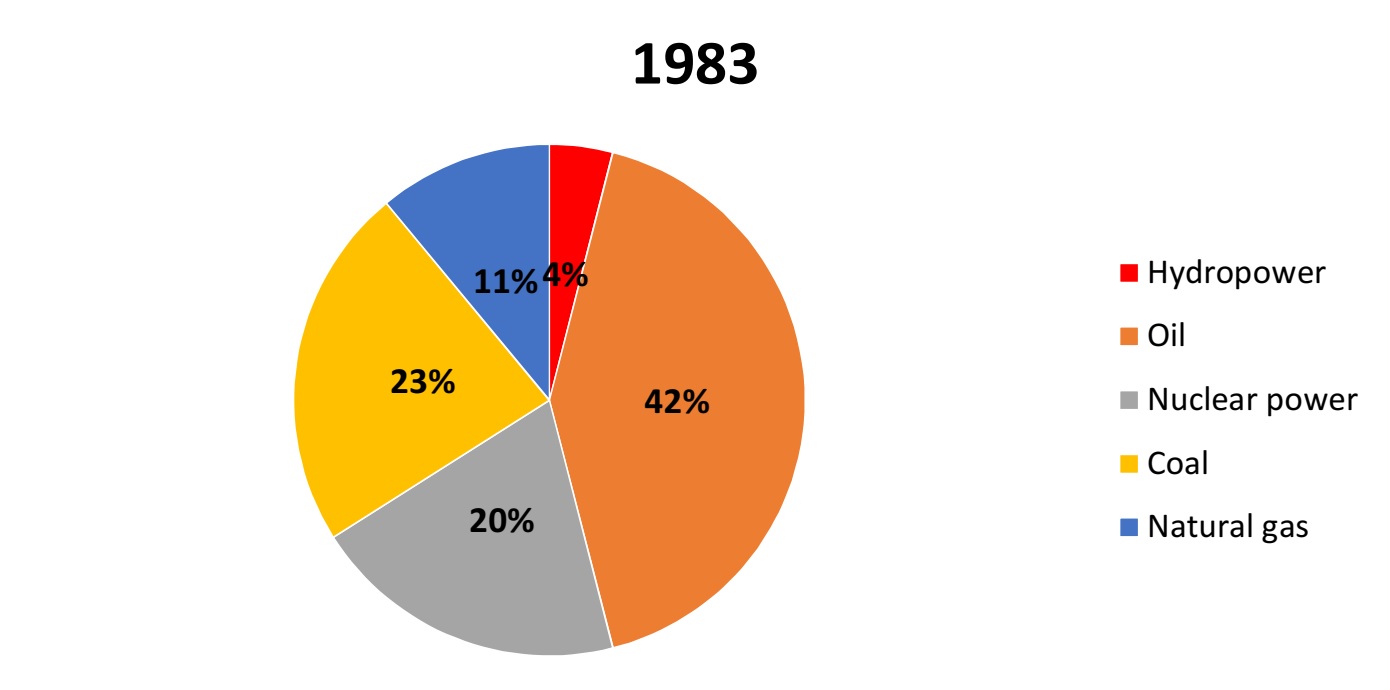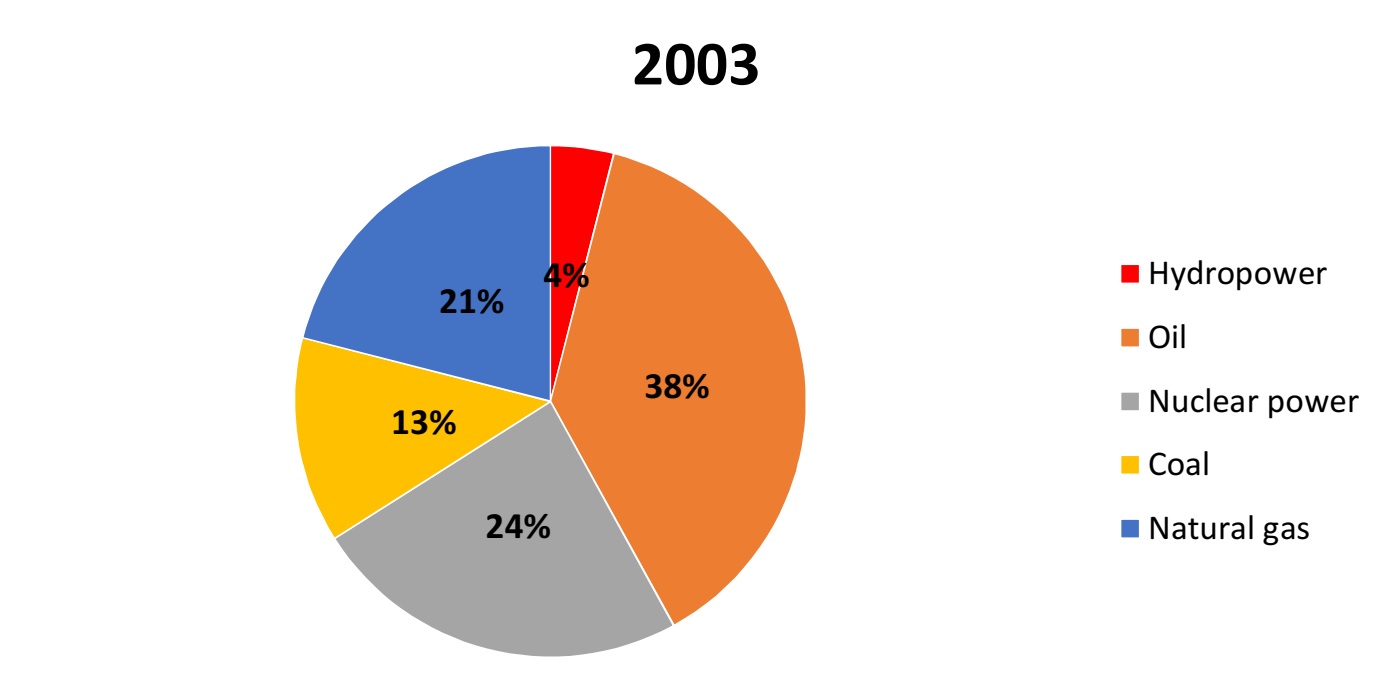The pie charts indicate changes in the proportions of energy produced in a country from 1983 to 2003. Summarize the information by selecting and reporting the main features, and make comparisons where relevant.
Write at least 150 words.


Some people say that the increasing business and cultural contact between countries is positive development, while others think that many countries will lose their national identities as a result.
Discuss both views and give your opinion
Give reasons for your answer and include any relevant examples from your own knowledge or experience.
Write at least 250 words.
WRITING TASK 1
The given pie charts depict data regarding the percentage of energy generated from five different sources (Hydropower, Oil, Nuclear power, Coal, Natural Gas) in a particular country between 1983 and 2003.
In general, it is clear that oil was the most popular source of energy in both years despite a slight decrease. In addition, this country also relied more on using nuclear power and natural gas by 2003.
To begin with, in 1983, oil and coal were used to produce 42% and 23% of the total energy, respectively. Over the next 20 years, the proportion of energy produced from oil saw a slight decline by 4%, while energy from coal also reduced by 10%.
In contrast, there was a reverse pattern in both figures for nuclear power and natural gas, which increased by 4% and 10% respectively to collectively surpass the percentage of energy generated from coal. On the other hand, hydropower was responsible for only 4% of energy produced in both years.
(163 words)
WRITING TASK 2
Nowadays, due to globalization, international business and cultural communication have become more prevalent on a global scale. Although some people believe that it has a negative impact on a countries identity, in my opinion, business and cultural exchanges between countries surely has more positive effects than drawbacks.
On the one hand, those who are worried about international trade and cultural exchange argue that this trend is detrimental to the culture and tradition of many countries in a number of ways. To be more specific, international trade has not been entirely beneficial for many developing and third world countries. The reason being that, the inflow of foreign capital only for export purposes causes the neglect of production in the domestic sector. Thus, despite large foreign investments, peoples’ lives in these countries have been minimally enhanced. With regard to cultural exchanges, this can lead to the possibility of losing traditions and customs in local communities. This is simply because a large number of individuals in these communities adapt quickly to foreign cultures in the attempts to conform to ideals not of their own, which can have devastating effects. A typical example of this in the 20th century is when parts of Cherokee Indian culture and heritage in the USA were lost due to the eagerness of adapting to the culture of the European settlers.
On the other hand, I do believe that the positive outcomes of cross-cultural activities and international trade are immense. Firstly, thanks to the rapid advancement of modern technology, internet users have access to intellectual property, such as films and music, of other countries. The international trade and business opportunities have helped global citizens to purchase and sell products at a competitive price, which allows them to have far more options nowadays than in the past. In addition, borrowing from other cultures can be a positive exchange, as it is conducive to gain a mutual respect and understanding for new cultures. Providing that international students have opportunities to learn about other cultures, they are more likely to not only build personal relationships, but also learn about these cultures from a local perspective, from which they can greatly benefit.
In conclusion, I believe that protecting culture and tradition depends on each country, and these would not be harmed from business and cultural exchanges with other nations.
(386 words)
